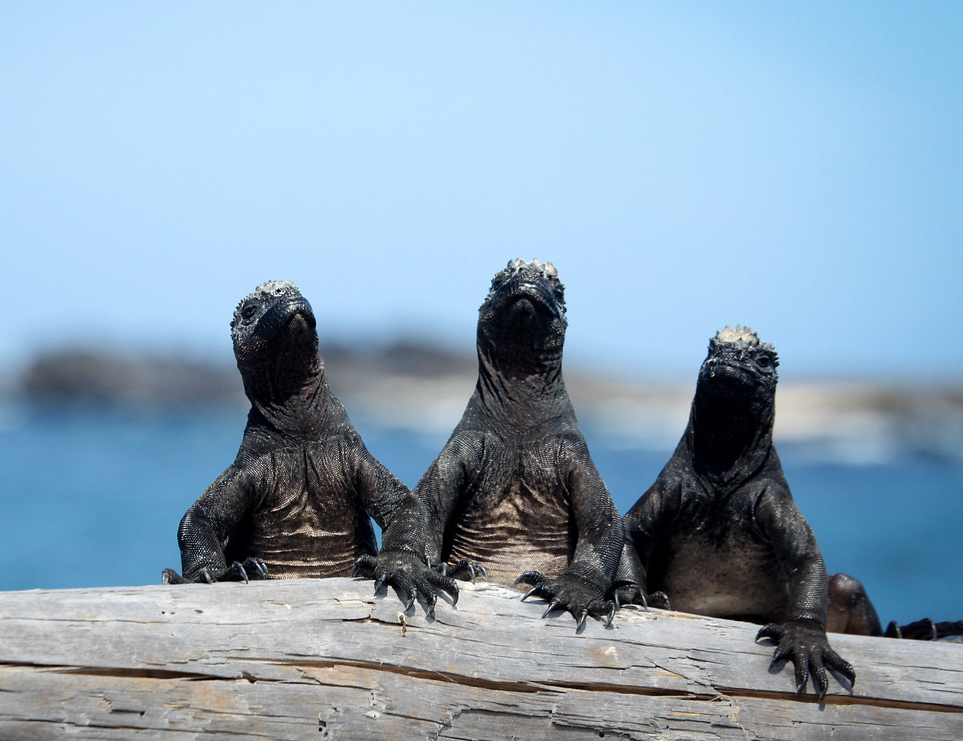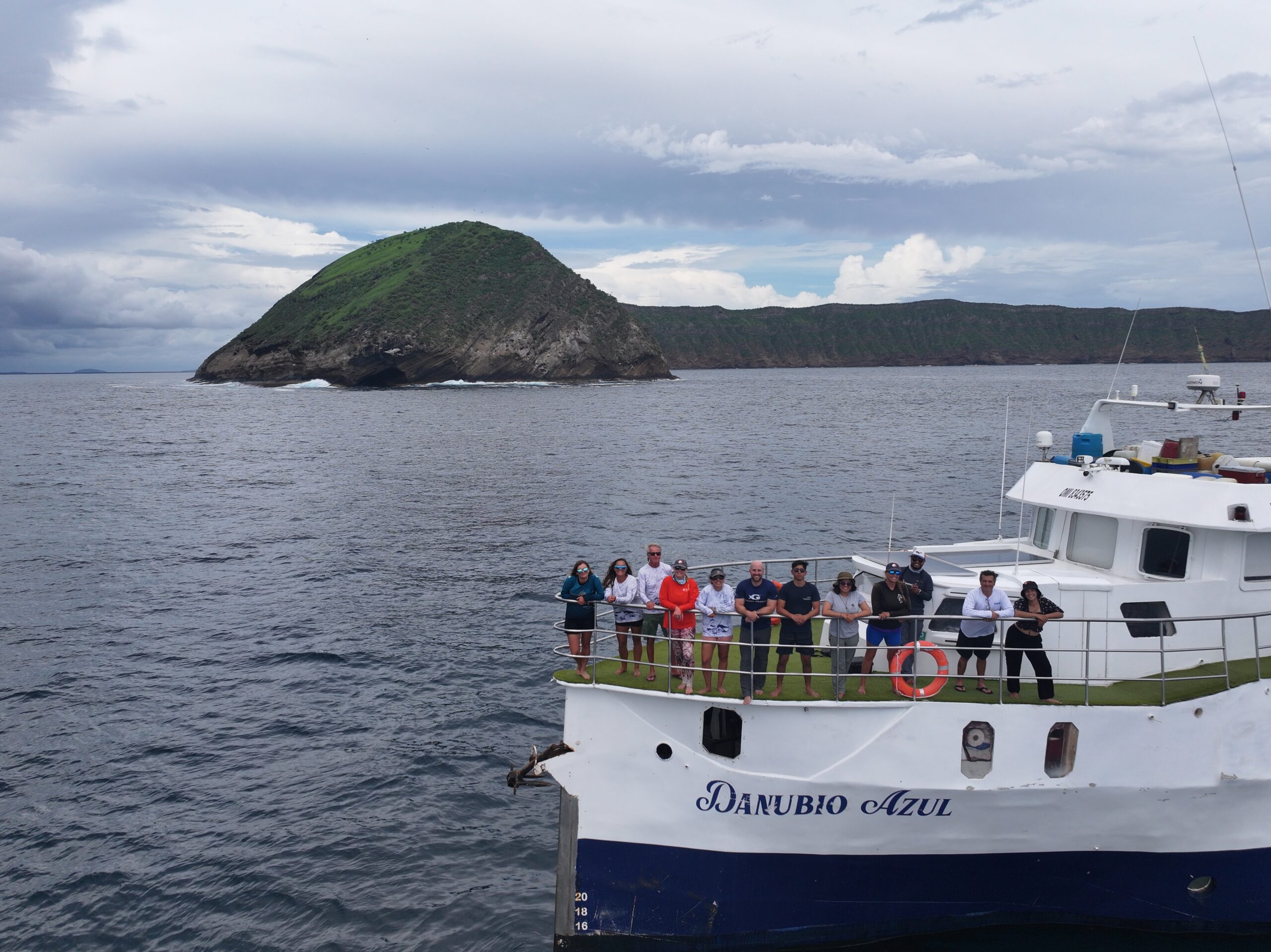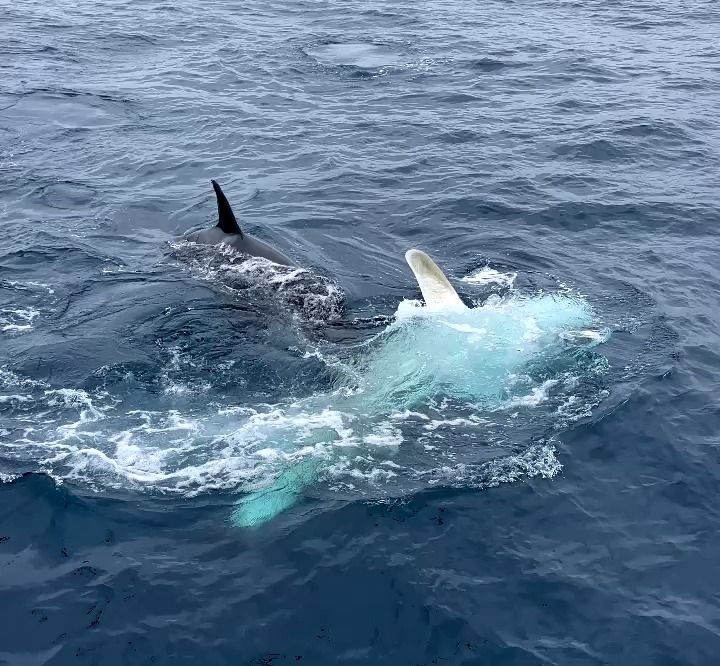
As we toured Nicolas’ farm for nearly 3 hours, it was abundantly clear that this was not any ordinary farm. There were no rows of crops. Instead, this place looked wild. Not only could you find banana, orange and mandarin trees to pick a treat from along our exploration, but Nicolas’ passion for combining conservation and agriculture was evident everywhere.
Enter scalesia. I never thought a giant member of the daisy family would be key to combining conservation and agriculture– but scalesia became a hot topic during my tour. Nicolas explained that scalesia is a plant (although it looks like a tree as it can grow to around 65 feet tall) and is prevalent in the Galapagos, with 15 endemic species found on the archipelago. Scalesia is known to adapt well to a changing environment, and some even refer to them as the Darwin finches of the plant world. However, scalesia populations are being threatened by both natural and human impacts. While there are large-scale, ongoing efforts to protect scalesia forests, it was refreshing to hear Nicolas speak about how he is replanting scalesia on his land to be part of the solution.
In San Cristobal there are 4 different species of scalesia and Nicolas and his team have successfully planted 3 of those species throughout his farm. To do this was no small feat. Nicolas and one of his colleagues, Jairo Alvarado, spent months clearing invasive plants such as mora (commonly known as the hill raspberry), guava, and rose apple trees with only human power and machetes. This land is not for the faint hearted either. While it abounds with beauty around every corner, it also is rough, uneven terrain – especially to be navigating without large scale equipment. Nicolas laughed when I asked him how he was able to accomplish clearing these 5 acres to reforest. His response is everything. “All I need are my dogs, a good cup of coffee, and my machete and I’m ready to start my day.”
Scalesia grows fast and can reach almost 13 feet tall in its first year. Therefore, each scalesia plant provides shading that is necessary for the coffee plants to thrive but also helps return the land to its more native state. And it isn’t just scalesia that Nicolas and others have used to reforest his land. Other endemic plants have been included such as miconia shrub and lecocarpus, a plant genus in the sunflower family that is native to the Galapagos. Besides providing shade to protect the coffee plants from excessive heat, planting in this way helps simulate the natural forest as it would have been before invasive plants were introduced.
The benefits of Nicolas’ REACCT project are plenty. Besides growing coffee beans that when roasted and ground make a mean cup of coffee or even the broader conservation implications of removing invasive plants and planting endemic species, the funds from REACCT were also able to benefit 4 families who have helped clear and work this land during the trying times of the pandemic.
“These funds not only helped me during the extremely difficult economic times of the pandemic but also other families that relied on tourism for their income. This project gave us hope and continues to provide hope for the future,” said Nicolas.
Nicolas is passionate about this way of farming and hopes that his land can be seen as an example for others to follow. “By planting in this way, it helps create a strong ecosystem to make the coffee more resilient to potential plaque and disease,” said Nicolas. “I hope I can inspire other farmers to create a habitat that not only produces resilient crops but also enhances conservation efforts.”
Currently, Nicolas undertakes small batch roasting with his coffee but hopes to be able to increase roasting capabilities in the future. His coffee, called The Petrels, is sold locally but he hopes to be able to increase production sustainably and sell beyond the local market.
“My dream is to show the balance between economy and conservation and provide an example to others that it is possible to do both. I am working towards creating my own café for locals and tourists to visit and see my process of growing and roasting the coffee all the way to sipping the final product. I hope to share my passion with others.”
I feel certain Nicolas already has done his fair share of inspiring others. And I can’t wait to see the next chapter in his story.
Written by Kelly Weaver, Director of External Affairs and Communications at UNC Center for Galapagos Studies






